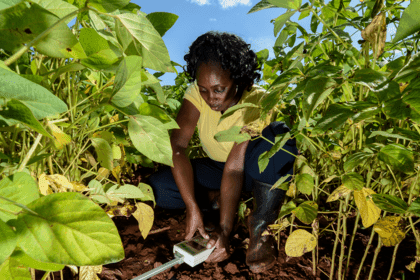
New funding to turbocharge climate policy development
A major funding opportunity will support the development of evidence to advance practical solutions to mitigate the urgent climate crisis and lessen its effect on human health.
Wellcome, which supports science to solve urgent health challenges, is calling for proposals from transdisciplinary teams to analyse the impacts of policy options, giving local or national decision-makers the information they need to choose the right solutions in different areas.
This innovative call enables researchers from different disciplines to join forces with influential policy partners to generate actionable evidence on the measured or modelled health effects and wider socioeconomic outcomes of climate mitigation solutions which can be put into practice.
Wellcome will be looking for proposals with the potential to lead to transformational net-zero aligned mitigation solutions in food systems, transport, energy or housing. These sectors were chosen because they account for the bulk of emissions and have the potential for substantive health benefits, with cost savings that could cover or significantly lower the implementation costs.
A pot of around £15mn is available under the funding call. Wellcome anticipates proposals involving policy analysis, economic modelling and public opinion research alongside health and climate science. The London-based global charitable foundation is offering up to £2mn per award and the duration of funding is up to three years.
This specific funding call is focused on researchers and policy makers in G7 countries, selected because they are countries which have high historical emissions, large economies and can influence global policy. Wellcome expects to issue a research call on mitigation solutions in low- and middle-income economies during 2023.
Grants will be offered to transdisciplinary teams, with researchers joining forces from climate, health and other relevant disciplines, for example economics and social sciences. It is compulsory for the team to also include “policy or implementation partners” who would be able to help put research findings into practice. These might be policymakers from national or local government, NGOs, advocates, affected communities or the wider public, and industry.
Teams must have the skills to answer multiple questions that will be of use to policy or implementation partners. Examples might range from assessing the health effects and cost-effectiveness of the mitigation policies, policy studies of which groups in society stand to benefit or lose out from to the solutions, or the messages that resonate with different audiences.
At the heart of this funding call is the need to advance solutions that will accelerate the progress of influential G7 countries towards climate mitigation. The Paris Agreement promised to “pursue efforts” to limit temperature rises to 1.5C and to limit greenhouse gas emissions to net zero between 2050 and 2100. While G7 counties signed up to this commitment, they do not currently have sufficient measures in place to achieve it. Wellcome wants to empower teams of researchers and policy influencers to present decision makers with evidenced and costed means of achieving their promises.
Crucially, Wellcome wants researchers to ensure that the evidence that is generated is linked to either an existing or an anticipated policy opportunity with the potential for transformational change.
Modi Mwatsama, Head of Interventions for Climate and Health at Wellcome said: “In response to the climate emergency, we need high-quality and useful evidence, rather than papers which remain unread in journals. We are looking for projects that involve policy influencers from the start because we want to help develop solutions that can be immediately adopted by governments and other authorities to drive ambitious mitigation actions. That’s why we are funding transdisciplinary research where researchers collaborate with policy and implementation partners.”
“Proposals can focus on any questions that will help advance health-centered climate action, from quantifying climate, health and economic benefits and trade-offs to guide policy choices, to evaluating the implementation of policies to identify what works and why.”
“We need to advance mitigation action to meet the Paris Agreement goals to limit temperature rises to 1.5C. Successful proposals will generate the necessary evidence to advance policy solutions at scale, so that the research will make a genuine difference to people’s lives in the near future.”
Notes
For more information on the funding call, please visit: Funding Opportunity: G7 Climate Mitigation Policy Solutions | Grant Funding | Wellcome

